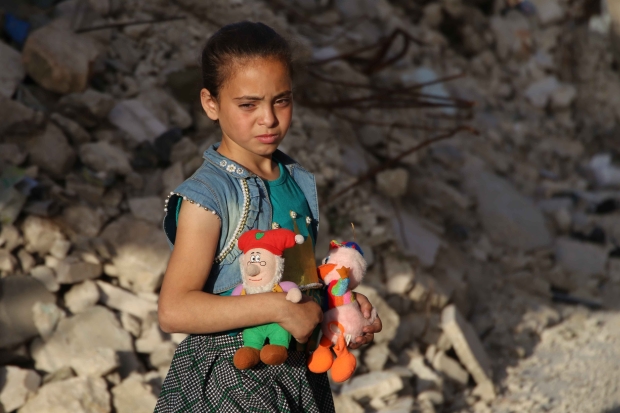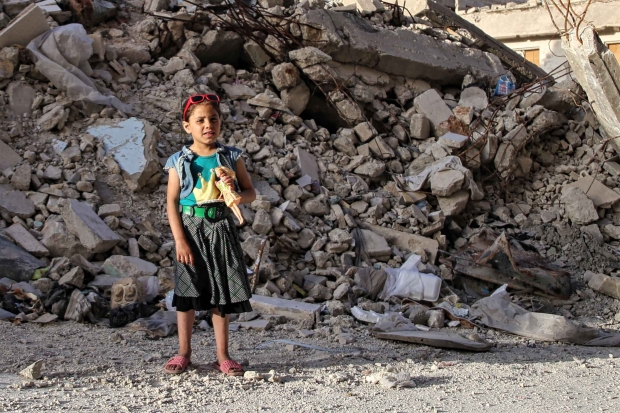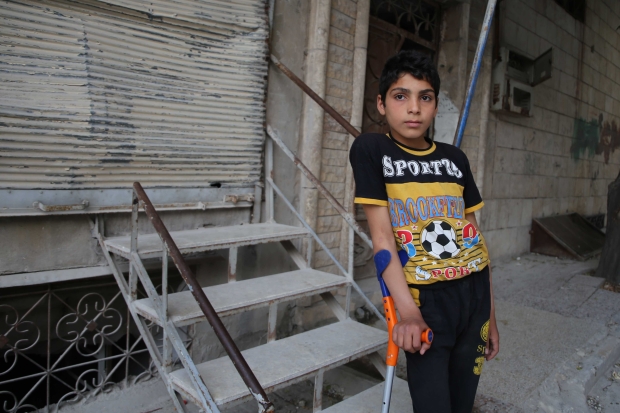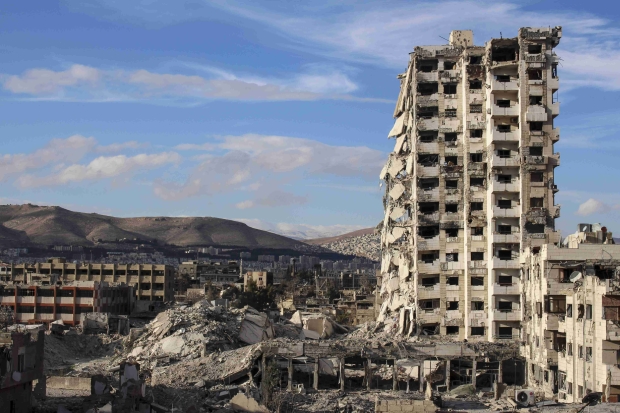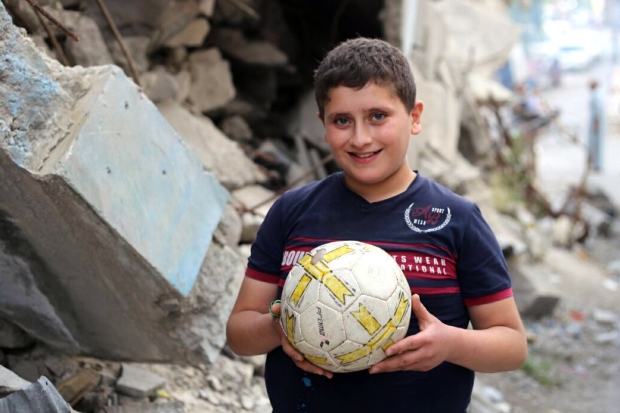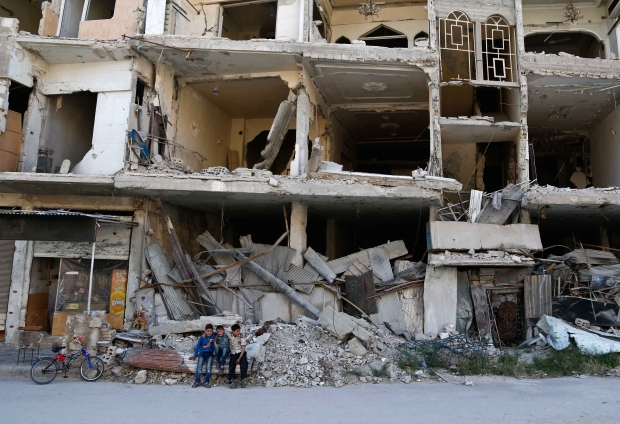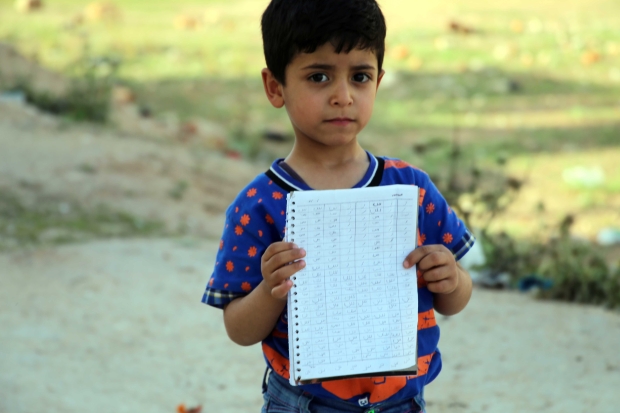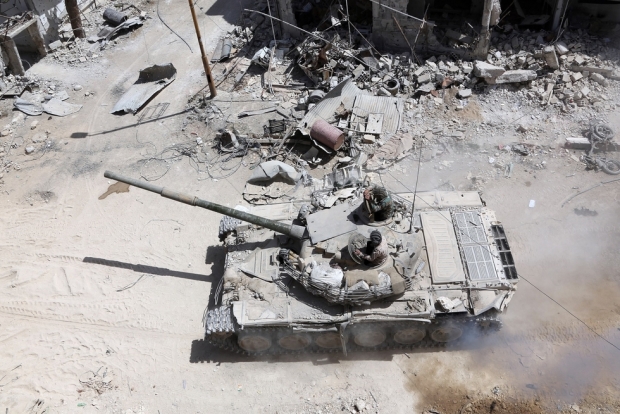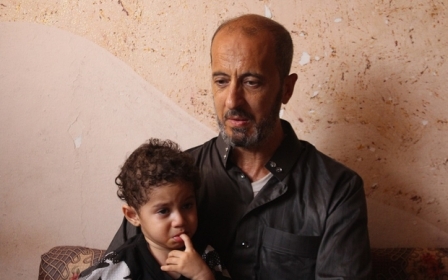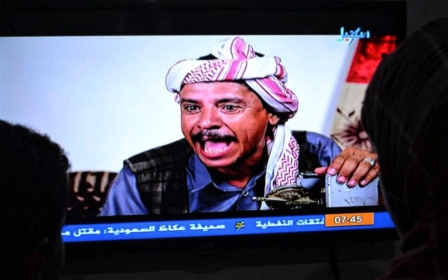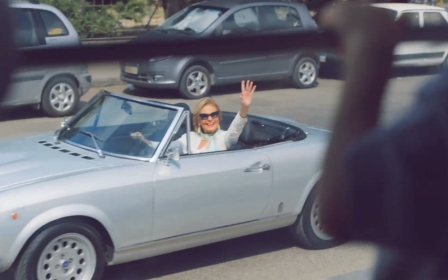My first Ramadan from home: Refugee kids and holy month
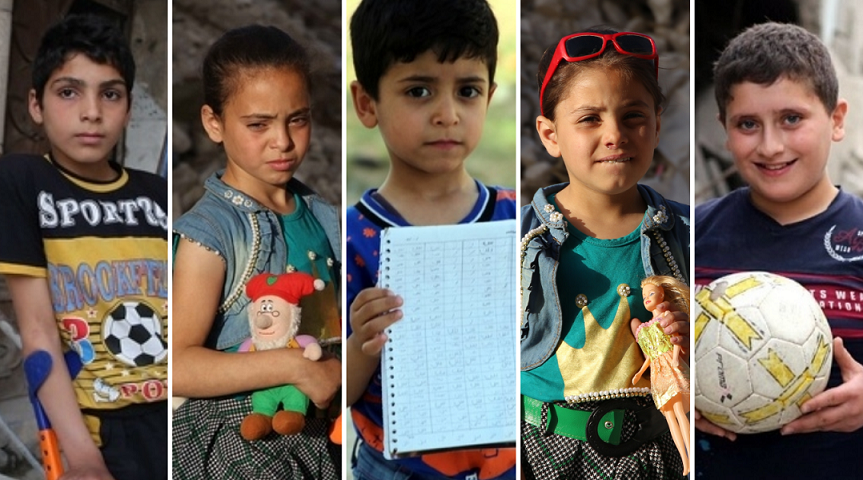
GAZIANTEP, Turkey - Ramadan in Idlib is like that in any town or city, as streets and shops fill with holy month adverts and discounts, while food and drink sellers parade their wares and call out to customers after the breaking of the fast.
Since 2015, the northern Syrian city has been a haven for those fleeing attacks by the government and its allies. Last year, thousands of refugees headed there from Aleppo, Syria’s second-largest city, after the fall of its eastern neighbourhoods.
This year, most of the new arrivals are from the Damascus suburbs, from Douma, Jobar and Erbin, following the onslaught on Ghouta.
There is an understandable sense of dislocation among these newest arrivals in Idlib. Nowhere is that more evident than with the children: for some this is not just their first Ramadan away from home but the first time they have left the neighbourhoods in which they were born and raised.
Many are having to adapt not just to losing possessions or familiar surroundings but also personal injuries and the death of family members – something they reflect on during the Islamic holy month. Photographs of the children are all Mohammad Karkas/MEE.
Maya: 'We also pray for our dad in heaven'
Bara'a and Maya Zaynab, aged seven and 11, are from Douma. They had never left home until they fled to Idlib, arriving in early April. Their father was killed in October 2016 when a barrel bomb hit their building and he was struck by shrapnel to the head. “I saw him when he was in the hospital at night,” said Bara'a, pictured above. "My uncle didn’t want to let me see him but he couldn't stop me.”What do you think of Idlib?
Maya (pictured below): I love this city, it's full of green space and calm without clashes or bombs, unlike how it used to be in Ghouta. We can sleep in our room and have food whenever we want. We can have fruit, which wasn't available before.
What do you miss about your home in Douma?
Bara'a: I miss my dad. I can't stop thinking about him. I miss when my father used to sleep next to me and hold me tightly.
Maya: Like my young sister, I miss my dad when he used to sleep a lot next to us with a lot of cuddles and kisses, playing with us until we slept. He was very caring and the best father in the world. I miss him like nothing else in the world. I miss my school, too, and the teachers in my district, even the underground schools [located in basements], which were like a second home, where I would spend a couple of hours before going back home and doing my homework, and help my mother.
What do you remember about Ramadan in Douma?
Bara'a: I remember the times when we were back home with my mum while she was preparing food for us when Daddy was alive. We pray for his soul every day we break our fast and in all our prayers.
How are you spending your day during Ramadan?Bara'a: There are no schools now in Idlib. I stay with my mother all day, helping her with housework. Then, after we finish, she teaches me the Quran and we pray together. Then I sleep for a few hours during the day, then I go down to the street to play with my friends.
Maya: My mum gives me extra lessons on reading and writing with homework, to catch up with what we have missed over the past few years in Ghouta. Later, I start helping my mother prepare for iftar [the breaking of the fast], chopping potatoes or making salad while she makes the main course, and carries on with the rest of the cooking.
Have you enough food for iftar?
Bara'a: Everything is available here. My mum is working, cleaning for an NGO, and she can get us something to eat. It's nothing fancy, like all the meals or dishes or drinks we used to have. We only have water and one dish with enough food for all of us which, as my mum always says, we should be grateful for.
Maya: My mum says to us that whatever we have for food is better than having nothing, and that we need to think about the people who are poor and how they suffer to get hold of a piece of loaf to break their fast. During this month, we pray for everyone who faces horrible problems, or has problems with their health, or family, or life. We also pray for our dad in heaven.
Does your faith help?
Maya: It reminds us to be more faithful and trust God, whatever situation we face, like when my dad died. Whenever we recall that day we feel so sad and desperate. But when we fast and we remember this crisis or whatever the future may bring, we remain calm and think that it's for the best, that it's God's will, and that we will cope with it through acceptance and patience.
What are your hopes for the future?
Bara'a: I hope that my dad comes back to us one day. I hope to live peacefully with my friends and schoolmates and study to become a maths teacher because I love maths.
Khald: 'I thank God I didn't lose my leg'
Khald Al-Masri is 14 and from Jobar in Ghouta. He and his family arrived two months ago and they now live in a one-room house. In late February, Khald was badly injured in the back and leg in Ghouta when he was hit by shrapnel from an air strike. At the time he was digging for water to support his family and others who were sheltering in a basement.What's life like in Idlib?
I'm happy living here, instead of the horror we used to experience in our daily life all the time. The best thing about it is that I will be able to go back to school next year in peace, with no bombs or attacks. I spend my day sitting because of my leg injuries, which prevent me from moving freely. I sit on the street, watching people moving and looking at the sky that once used to rain hell upon us.
I enjoy this a lot. When we were in Ghouta, we spent weeks hiding in basements without being able to leave to get some food. Even getting to the toilet was tough.
What was Ramadan like in Jobar?
Ramadan used to be full of enthusiasm and spirituality. I used to work in Ghouta, selling sweets and Ramadan desserts among families walking back and forth, shouting out about what I had to sell and talking to people.
During the last six or seven Ramadans, we used to have helicopters flying and the sound of explosions everywhere, especially during iftar, which scared us. I don't miss that but I do feel homesick when I recall these moments. It might not make sense, but I still have that feeling inside me. I can only see it in my dreams.
After iftar, my father and I used to go to the mosque to pray and visit my uncles and some of my dad's friends. However, now everything has completely changed. Even though we are living in Syria, it doesn't feel like home.
What is iftar like in Idlib?
We have a variety of food for iftar, but not as much as back in Ghouta. Every day, we have a fresh meal for the main meal, sometimes potatoes, at other times chicken and rice, or chicken soup. It is enough for us, thanks to God.
Our faith encourages us to be strong and to carry on with our lives, despite the difficulties we have been through, especially during the last months in Ghouta and leaving our homes.
What hopes do you have for the future?
The injuries to my back were minor but my leg was significantly injured. I thank God I didn't lost my leg or any part of my body. I hope to become healthy again so I can walk freely, play around and get to know our neighbours in the street.
I also hope I can complete my studies properly, unlike in the past, when schools were forced to close countless times due to the attacks. I wish one day we can go back to our neighbourhood and rebuild our home again after it was destroyed in 2016.
Ahmad: 'These memories make me feel sad'
Ahmad Dahroj, 14, is from Erbin in Ghouta. He has been in Idlib for nearly three months and has never spent Ramadan away from home.What do you like about Idlib?
I like the fact it is full of people and there’s no noise from bombs or warplanes, like how it used to be 24/7 in Ghouta. My parents now let me go out and play with other children. I can go for a walk without being told off by my mother.
What's Ramadan been like this year?
We have one meal every day on iftar, sometimes we have omelette, sometimes pasta. We have chicken once a week. My dad says it's expensive. Sometimes we have sweets after iftar.
What memories do you have of Ramadan in Erbin?
It's different now because we aren't eating any more in our house in the living room. We used to have a big TV where we would watch Ramadan programmes and listen to the Quran or religious programmes. It was a bit of a ritual and cosy back then. Now thinking about these memories makes me feel sad.
The shops were crowded with people walking back and forth. There was the smell of fresh bread and sweets, it was so nice. There was also the soos seller [soos, also known as erk-soos, is a popular liquorice-flavoured drink] with his boxes of ice and soos, calling out. People used to crowd round him buy it before he ran out. It had a special taste, no one else sold anything like it.
The bombing used to be intense in that month, especially during iftar and sohour [the pre-dawn meal] around midnight, when heavy missiles used to fall on the buildings around us. Having said that, my dad was injured last month when a mortar bomb hit the mosque where he was praying.I don't see the same people I used to see or my friends who I used to play with. Even not hearing the planes feels wrong.
What does the holy month mean to you?
My mum says fasting teaches you to be faithful and patient, to be with God all the time and pray hard to him, so we have his help and mercy during times of crisis.
What about the future?
One day I want to go back to my street and district, and be with my friends who I used to play with. I hope we have no more attacks and live in peace, to continue our lives without being afraid that death will come to us from the sky.
Nawras: 'We are in a different country'
Nawras Nahas, 10, is from Douma and arrived in Idlib at the end of March. It is his first Ramadan away from home.What do you think of Idlib?
I like that I can no longer hear the sound of planes or explosions in the city. My mum allows me to go out with her whenever she leaves for a walk to buy some food for us.
What's life like here during Ramadan?
I like Ramadan because we have a different routine and it is before Eid, which is coming soon. It also brings us closer. And we have sweets every day after the main meal, when we break the fast. I try to fast during the day - sometimes I can't and I have a sip of water to keep going.
I go out to buy bread and other stuff from a nearby market. Then I go back home and watch TV and play on my mum's computer. I sleep once again during the day for an hour. Afterwards, I go out to play football in the backyard with our neighbour, then we play cards too. Then I go back home and stay there until the breaking of the fast. Later, I go with my dad to pray.
What do you recall about Ramadan in Douma?
Most of the time we were scared of attacks by helicopters. I remember the Ramadan sweets such as marouk [a doughnut-style treat], which had different flavours such as banana and chocolate. Many other things used to be included for the iftar meal, which we don't have any more.
It feels awkward here. It doesn't feel like home but that we are in a different country. I wish we could go back to the siege and live the same routine we used to have for many years.
Middle East Eye propose une couverture et une analyse indépendantes et incomparables du Moyen-Orient, de l’Afrique du Nord et d’autres régions du monde. Pour en savoir plus sur la reprise de ce contenu et les frais qui s’appliquent, veuillez remplir ce formulaire [en anglais]. Pour en savoir plus sur MEE, cliquez ici [en anglais].


